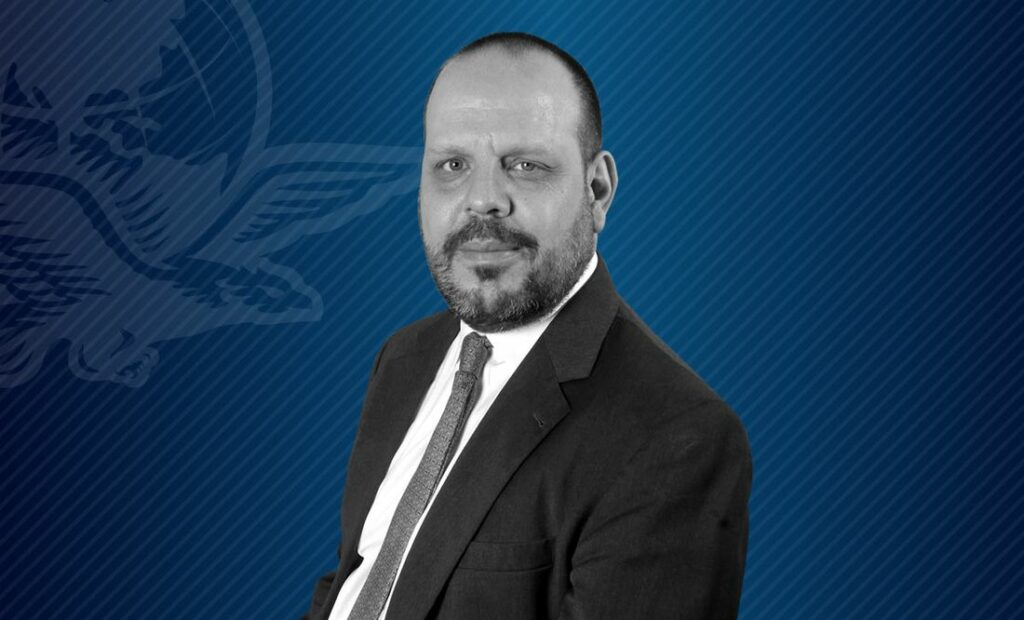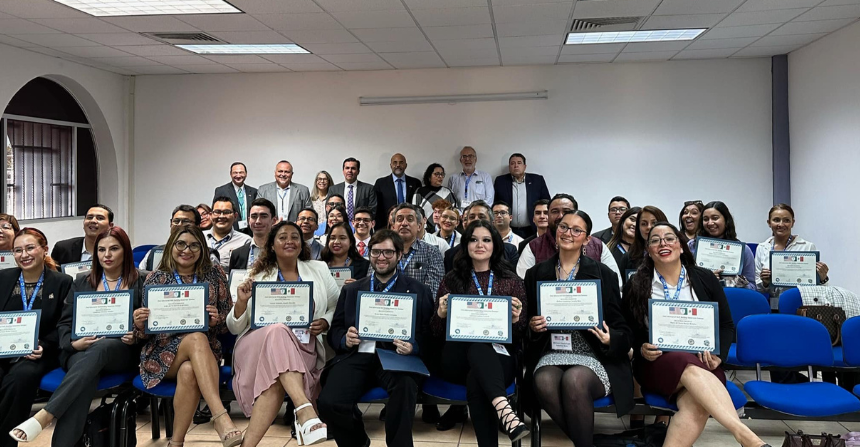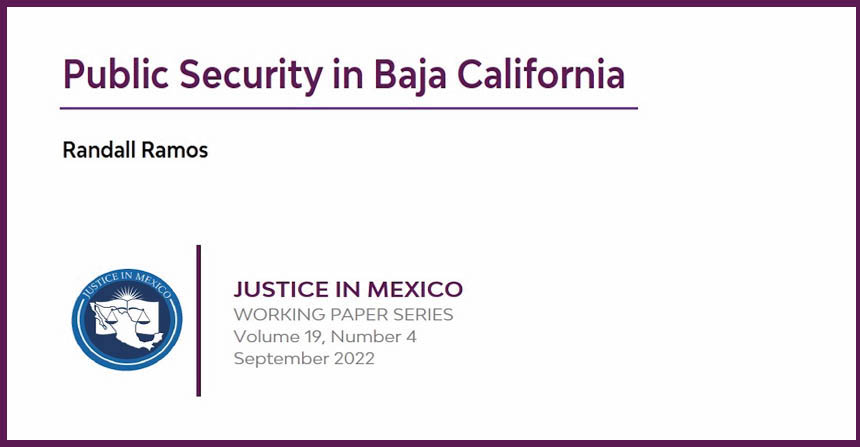02/29/12—A scholarly duo has begun a tour of Mexico, encouraging Mexicans to set their country on a new path to change. It is composed of Jorge G. Castañeda, former Secretary of Foreign Relations, prolific author, and judicially frustrated 2006 presidential candidate, along side journalist and historian Héctor Aguilar Camín. They believe Mexicans can create the change they wish for by demanding specific, concrete, and feasible policy solutions in this season’s election debates. The authors deliver this message with the launch of their newest book, “An Agenda for Mexico: 2012.”
Aguilar described the book as a “proposal” to “make Mexico a developed country, one with a $25 – 30,000 per capita income, a solid middle class, prosperity, equality, and democracy,” all “within the time span of a generation.” The authors believe the first step toward reaching this goal is for the Mexican people to stop viewing Mexico as a place where “everything is bad and nothing ever gets better,” but rather to see Mexico’s “nucleus of potential, which has been eclipsed by the discourse on public security.” Castañeda quotes his book’s text: “Mexico is a whale that continues to think as if it were a lizard (ajolote).”
The authors point to various indicators that the situation in Mexico is actually much better than most give it credit for: since 1996, Mexico has grown economically, socially, and politically; and human rights violations have fallen. Nevertheless, Aguilar laments, in the world’s eyes, Mexico “is the country of violence and fear, and Brazil is the country of globalization and hope.”
The book’s sections cover Mexico’s relationship with the past, the creation and distribution of wealth, the role of unions, education, security, democracy, governability, and potential pathways for change. The authors call upon the next government to “send five signals” during its first months in office, to earn back some of the trust that Mexico’s government has lost in recent years. These “signals” would make clear to the world that Mexico is set on improving:
• public infrastructure;
• eradicating all monopolies, so as to free “Mexico’s tremendous entrepreneurial spirit,”—including ending government
subsidies to the national oil company Pemex, and opening it to private, international investors;
• security;
• the fight against organized crime;
• education—including full school days and computers for all students; and
• fiscal policy—to provide the federal government with more resources.
Commenting on the relationship between some of these topics, Aguilar mused, “this is a country that stands with one foot in modernity and the other foot in developmental delay; it needs a few good decisions made to improve economic competitivity, social policy, public education, and the political system, and then we can build a stronger government.”
Castañeda spoke on security, advocating that Mexico follow Colombia’s model and create a national police force. Colombia’s unified police force has significantly reduced homicide rates, and made strides in gaining the public trust. President Calderón also favors a unified national police force (el Mando Único), but Casteñeda calls for yet one more level of reform—for a civil, non-military minister to head domestic law enforcement. This is crucial, he says, because it would allow the minister to act upon his or her professional judgment, without fear of executive branch retribution. Equally important, explains Casteñeda, a non-military security minister would be more accountable to the people, as members of Congress would feel comfortable questioning a civilian public servant in a way it never would with a military official.
Castañeda also advocates changing the “objectives,” rather than just “strategies” in Mexico’s struggle to improve security. He believes that this could be done by de-criminalizing drugs “under agreement with the United States, or if not, together with other Latin Amecian countries.” This would allow law enforcement to focus on eradicating the violence that directly affects Mexican citizens, such as kidnapping and extortion, rather than the suppression of drugs per se. “Drug trafficking in and of itself,” he declares, “doesn’t matter to anyone…what we should do is arrest a kidnapper because he is kidnapping. If he happens to be a drug trafficker too, that’s fine, we’ve arrested a drug trafficker. If not, let’s put the kidnapper away so that he stops kidnapping. Let the trafficker keep bringing cocaine into the United States, and let the Americans worry about it!” As a tool in this process, he argues for applying a uniform penal code to the entire country, and doing away with the many and varied state and federal criminal codes and jurisdictions.
As for Mexican foreign policy, Castañeda and Aguilar’s stance has been controversial among some sectors of Mexican society. Despite the recognized cultural distance between the two countries, the authors speak of Mexico’s “de facto integration” with the United States, in areas of the economy, trade, and migration flow. This integration was never “a political decision,” according to Castañeda, but an inevitable “fact,” given how the two countries developed. “In Mexico,” explains Casteñeda, “we export manufactured products to the U.S., we receive tourists from the U.S., we receive remittances from our countrymen in the U.S., this is what we do.” Castañeda and Aguilar believe that Mexico should capitalize on these ties, and demand that national leadership better bridge the gulf between the countries.
On the domestic front, the authors call for mechanisms to help end political deadlock, blaming much of the country’s dispiritedness on this problem. As such, they also demand that political leaders push educational reform measures to fruition, with or without the blessing of the powerful national teacher’s union’s.
Sources:
Aguilar Valenzuela, Rubén. “Una Agenda para México.” El Economista.mx. February 26, 2012.
“Presentan ‘Una agenda para México 2012.’” Noticias MSV. February 28, 2012.
“Es tiempo de mostrar la otra mitad del país.” Informador.com.mx. February 8, 2012.
“La tenencia debe continuar: Castañeda.” Informador.com.mx. February 7, 2012.
“Presentan libro Una Agenda para México 2012.” Informador.com.mx. February 7, 2012.




